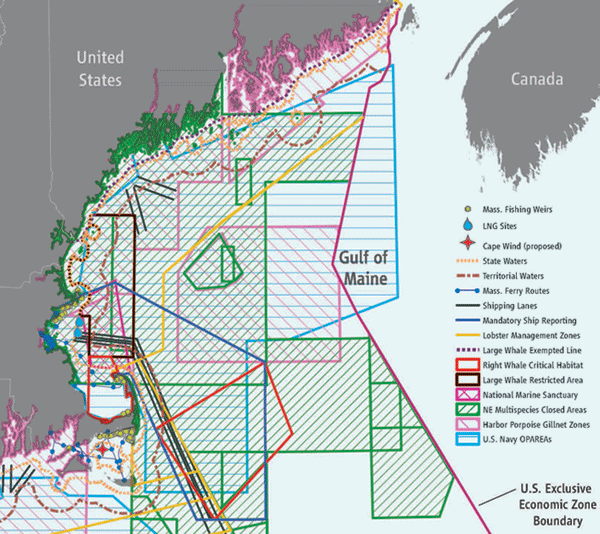Last summer, to the excitement of ocean policy wonks and yawns by pretty much everyone else, President Obama unveiled a new National Ocean Policy. The basic idea was to cut through the impenetrable tangle of regulations governing marine activities like fishing, shipping, oil drilling, and conservation that have sprouted up willy-nilly in the various agencies and that often end up working against one another. And it said a lot of the right things. I particularly like these bits:
“(i) protect, maintain, and restore the health and biological diversity of ocean, coastal, and Great Lakes ecosystems and resources; . . .
(iv) use the best available science and knowledge to inform decisions affecting the ocean, our coasts, and the Great Lakes, and enhance humanity’s capacity to understand, respond, and adapt to a changing global environment”
Biodiversity! Best available science — what a radical idea! And how do we get there? “The United States shall promote this policy by:
(i) ensuring a comprehensive and collaborative framework for the stewardship of the ocean, our coasts, and the Great Lakes that facilitates cohesive actions across the Federal Government, as well as participation of State, tribal, and local authorities, regional governance structures, nongovernmental organizations, the public, and the private sector;
(ii) cooperating and exercising leadership at the international level;
(iii) pursuing the United States’ accession to the Law of the Sea Convention; and
(iv) supporting ocean stewardship in a fiscally responsible manner.”
I know, this stuff really gets the adrenaline flowing. But the directive is historic in that it’s the first time in American history that the highest levels of government have explicitly recognized that we need a comprehensive ocean policy.
Whether it will ever be implemented is another question entirely. Now Congress is debating what to do about those recommendations. Or, more accurately, after ignoring it for a year, the Republican leadership has suddenly found the policy a convenient boogie man to fire up the old work-horse talking points: the policy will kill jobs, suffocate the country under new regulations, impose socialism, sleep with your spouse, and generally precipitate the collapse of western civilization as we know it.
Or not. As Congresman Ed Markey (D-MA) notes, “Opposing ocean planning is like opposing air-traffic control.” After three years of political knife-fights the White House appears finally to be getting a clue how this game works and so has posted “The Truth about the National Ocean Policy“. Among other highlights:
“The National Ocean Policy does not alter any government authorities and does not require new legislation to be implemented.
Currently, all parties are left to independently navigate and interpret approximately 100 laws, regulations, and policies affecting the ocean, a system that is inefficient at best. The National Ocean Policy improves coordination at all levels of government.
The National Ocean Policy will in fact save taxpayers money by reducing Federal waste, inefficiency and delay.”
Hard to imagine these issues rising to the top of Congress’s priorities in the current economic and political climate. But at least they’re talking about it.

Leave a Reply